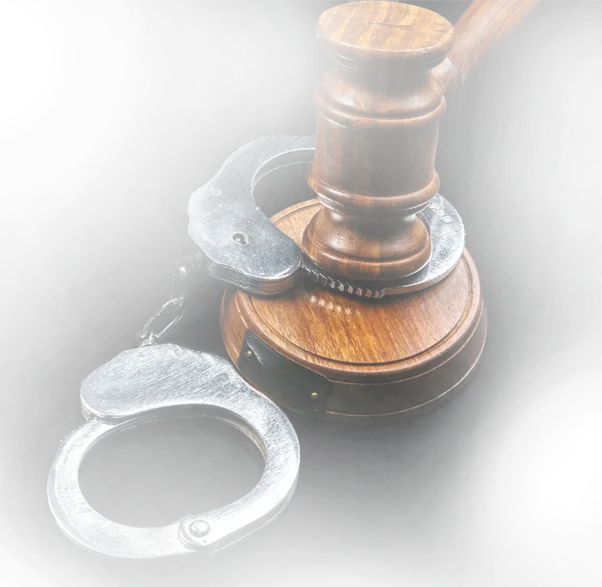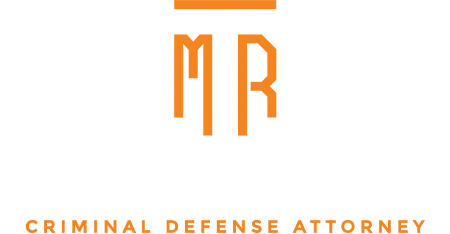Freehold Federal White Collar Crime Lawyer
Federal White Collar Crime Attorney in Freehold
If you have been charged with a white-collar crime, this is a serious federal offense that could lead to devastating consequences, such as long periods of time in prison, hefty fines, and long-lasting reputational damage. Therefore, it is crucial to work with an aggressive and skilled Freehold federal white collar crime lawyer who can defend your rights and launch a strong defense. The legal team at Michael Rosas Law PC is eager to get started discussing your case today.
At Michael Rosas Law PC, our dedicated legal team understands the high stakes associated with federal white-collar crime cases and gives detail-oriented legal counsel to those who have been accused in the Freehold area. As the U.S. Attorney’s Office for the District of New Jersey fiercely prosecutes these cases, which commonly involve conspiracy allegations, fraud, or financial transactions, it is vital to work with a lawyer who can help you fight back.
New Jersey Attorney Advocates
For The Criminally Accused
Call For A Consultation (732) 795-9027
Common Federal White-Collar Crimes
White-collar crimes are aggressively prosecuted by the federal government. Although they are not violent in nature, they can lead to severe consequences for victims that are financially debilitating. Law enforcement and prosecutors work to crack down on these crimes. For the accused, however, it can be highly stressful to face such serious charges.
Before trial, defendants could either be held in federal detention centers or county jails under contract with U.S. Marshals. Some of the offenses that are most commonly charged include:
Mail and Wire Fraud (18 U.S.C. §§ 1341 and 1343)
These types of charges emerge when prosecutors say that an individual utilized electronic communication, the phone, or mail to carry out a scheme of a fraudulent nature. Mail and wire fraud statutes are commonly applied in cases that involve financial scams like insurance fraud or investment fraud. Convictions are severe and can involve up to 20 years in prison for each count.
Racketeer Influenced and Corrupt Organizations Act (RICO) (18 U.S.C. §§ 1961–1968)
Initially made to pursue organized crime, the RICO Act is now commonly utilized to target financial and corporate crimes. To convict someone under the RICO Act, the government will need to show that the defendant was engaged in racketeering activity that is clearly linked to an organization or enterprise. RICO convictions can lead to forfeiture of assets, hefty financial penalties, and a 20-year prison sentence.
Making False Statements (18 U.S.C. § 1001)
Charges can be brought forward under 18 U.S.C. § 1001 if someone is accused of lying to federal investigators, whether on official documents or during an interview. The government is not required to prove that any crime was underlying this one to charge someone under these statutes. A person who is accused of making a false statement to the government can face a prison sentence of up to five years.
Theft or Bribery Concerning Programs Receiving Federal Funds (18 U.S.C. § 666)
Under federal law, it is prohibited for organizations that receive more than $10,000 in federal funding to bribe or steal. This includes organizations like universities, state or local governments, and hospitals. Individuals found guilty under this statute could face up to 10 years in prison.
Conspiracy Against the United States (18 U.S.C. § 371)
Individuals facing charges of conspiracy against the United States are commonly connected to other types of crimes. A person can face charges under this statute if it determines that two or more individuals made plans to commit an offense against the United States. Even in the absence of the actual crime ever being committed, conspiracy alone can lead to a prison sentence of five years.
Freehold’s Business and Economic Landscape
White-collar crimes are commonly seen in the finance and business world. This makes Freehold, New Jersey, an area full of business owners, professionals, and executives vulnerable to federal investigations and charges.
Freehold Township had a population of 35,531 people in 2023 and 784 employer firms in 2022. As the area has a robust presence of businesses, this leaves them susceptible to federal investigations that could include financial misrepresentation, corporate fraud, and other types of economic offenses.
Freehold Borough, on the other hand, which boasts a population of 12,504, is home to a diverse workforce. Top sectors include sales and related occupations (754) and office and administrative support (718). These economic areas could potentially be connected to white-collar crimes like insider trading, fraud, or embezzlement. Professionals in Freehold should remain vigilant when it comes to compliance with federal laws, as even an unintentional mistake can lead to charges.
How Federal White-Collar Cases Are Prosecuted
As opposed to state-level prosecutions, white-collar crime cases are significantly different. These types of cases are handled in federal courts and can involve up to months or even years of investigation before charges can even be filed. In the state of New Jersey, white-collar cases on the federal level are prosecuted at the United States District Court for the District of New Jersey.
Agencies involved in federal investigations of defendants include the Securities and Exchange Commission, the Federal Bureau of Investigation, the Department of Justice, and the Internal Revenue Service. Investigations may involve issuing subpoenas to get financial documentation, requesting search warrants, and conducting interviews.
It is not uncommon for defendants to not be aware that they are being investigated until they get a target letter from the U.S. Attorney’s Office. If you believe you are under investigation, it is crucial to work with a dedicated attorney as soon as possible.
Potential Penalties for White-Collar Crimes
The penalties associated with white-collar crimes are dependent on the charge in question, the defendant’s criminal record, and the amount of financial losses linked to the crime. Convictions commonly lead to long prison sentences, up to millions of dollars in fines, asset forfeiture, restitution payments, and probation or supervised release after prison.
Federal sentencing guidelines take into account factors such as the number of victims impacted, financial losses linked to the crime, if the defendant destroyed evidence or obstructed justice, and the role of the defendant in the alleged offense.
As there is so much at stake in federal white-collar crime cases, it is crucial to work with an aggressive and knowledgeable defense attorney who can help you fight back against your charges.
FAQs:
What Are the Penalties for Federal White-Collar Crimes?
The penalties for white-collar crime charges are dependent on various factors, including the number of victims, the amount of financial losses linked to the crime, the defendant’s role in the crime, and the defendant’s criminal history. Potential penalties can include substantial fines, forfeiture of assets, large restitution payments to victims, probation, supervised release, and long periods of incarceration.
Which Federal Laws Govern White-Collar Crimes?
Federal laws that govern white-collar crimes are various statutes, such as the Racketeer Influenced and Corrupt Organizations Act (RICO) (18 U.S.C. §§ 1961–1968), Theft or Bribery Concerning Programs Receiving Federal Funds (18 U.S.C. § 666), Conspiracy Against the United States (18 U.S.C. § 371), Making False Statements (18 U.S.C. § 1001) and Mail and Wire Fraud (18 U.S.C. §§ 1341 and 1343).
A knowledgeable attorney can help you understand which statutes are relevant to your case.
How Are White-Collar Crimes Investigated?
White-collar crimes are fiercely investigated by federal agencies such as the DOJ, IRS, SEC, and FBI. They may also collaborate with local stakeholders in New Jersey. The investigation process commonly includes wiretaps and other surveillance, interviews, subpoenas for financial documentation, and forensic accounting. It is not uncommon for people to not know they are being investigated until they receive a target letter from the U.S. Attorney’s Office.
Where Are Federal White-Collar Crime Cases Tried in New Jersey?
Federal white-collar crime cases in New Jersey are commonly tried in federal courts like the U.S. District Court for the District of New Jersey. These crimes are prosecuted by the U.S. Attorney’s Office for the District of New Jersey. Up until trial, defendants could be held in county jails that are under contract with the U.S. marshals or federal detention centers. A dedicated attorney can help you navigate the local legal landscape.
What Should I Do If I Am Under Federal Investigation?
If you are under federal investigation for white-collar crimes, it is crucial not to speak with law enforcement without having your lawyer present. As soon as possible, you should get in contact with a skilled federal white-collar crime lawyer who can safeguard your rights, help you start developing your defense strategy, and prevent you from any potential self-incrimination.
Contact a Freehold Federal White-Collar Crime Lawyer Today – Michael Rosas Law PC
If you or someone you love is facing federal white-collar crime charges, it is crucial to act quickly. Federal prosecutors are ruthless when trying to get a conviction, and early intervention can truly make a difference. Contact an aggressive and seasoned attorney from Michael Rosas Law PC. Our experienced legal team can help you defend against complex white-collar charges – from fraud to RICO charges to embezzlement – helping push for optimal case outcomes and protecting your future.
Fighting for the Rights of the
Accused in New Jersey
Call For A Consultation (732) 795-9027


